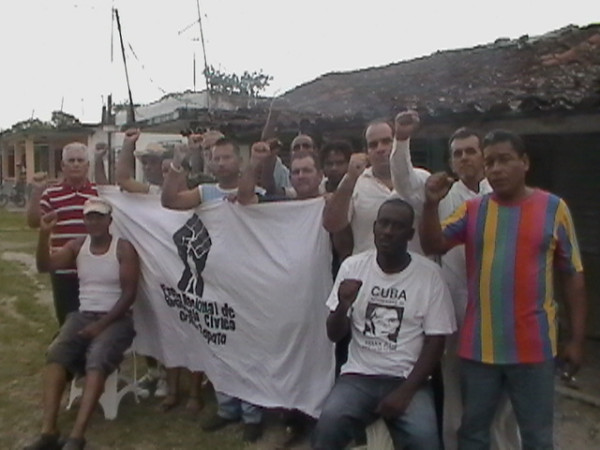
Diverse elements came together – this time – so that the hunger strike of the many Cuban dissidents demanding the release of a prisoner was successful. The very size of it was a critical factor in its positive outcome. It started with a dozen activists refusing to eat, and by the end more than thirty had joined in. Although Raul Castro’s government has frequently dealt with situations of this kind, the large number of strikers greatly complicated its medical, police and informational contingencies.
The obvious legal violation being committed against Jorge Vazquez Chaviano focused the protest with respect to the country’s legislation. The authorities were trapped in their own legal code, compelled to comply with the opinions issued by their courts. Although judicial arbitrariness abounds throughout the country, there are few situations that offer such obvious evidence of irregularities. Vazquez Chaviano’s case was one of those rare exceptions; a sentencing certificate on letterhead with stamp and signature clearly gave the lie to the official action.
In 2010, when Guillermo Fariñas led the protest of empty stomachs the alternative information networks were not as extensive as they are today, nor as immediate and effective in calling people together. Within twenty-four hours of the press conference announcing the start of the hunger strike, most of the dissidents in the entire Island were aware of what was happening. Twitter has become an irreplaceable tool to confront the press monopoly held by the Communist Party. The hashtag #HuelgadeHambre (Hunger Strike), and the names of those participating in it, lit up this social network.
The rapid response of the international community also contributed to the result achieved. Amnesty International’s statement clarifying why Vazquez Chaviano was still in prison alerted many inside and outside of Cuba. Other statements from European politicians, in which they expressed alarm for the health of the hunger strikers, contributed to publicizing the event far beyond our national borders, making it clear that people were worried and were watching what was happening. The times in which it seemed as if “no one was listening” are definitely long gone.
Despite some criticisms of the strikers, the opposition was surprisingly united around their demand. There were many who saw the fast as diverting attention from other civic projects now gaining strength, but they were the minority. In general, the hunger strikers received numerous displays of solidarity and managed to unite around themselves widely diverse sectors of Cuban civil society. Perhaps this was the major reason that State Security communicated with Vazquez Chaviano’s family on Tuesday that he would be released quickly. The negative political cost of the hunger strike was a distraction for the government, while it functioned as a unifying force for the dissidents.
The Cuban opposition won this round, one to zero.
19 September 2012
